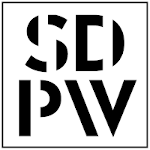Wykaz obszarów badawczych związanych z tagiem Zrownowazony-rozwoj:
| # | Obszar badawczy | Dziedzina naukowa |
|---|---|---|
| 1 |
Modeling of systems and processes and multi-criteria decision support in transport and logistics covering the following areas and issues: traffic models, models of transport systems development, multi-criteria optimization and evolution algorithms in solving transport problems, traffic analysis, ecology and sustainable development of transport. The research concerns the decision-making problems of rail, road, urban transport, air transport, and city logistics.
Supervisor of 18 doctors and over 200 masters, engineers, and bachelor's degrees. Manager, coordinator, or main contractor of several dozen research and industry projects.
|
|
| 2 |
Her research interests are focused on the issues of modelling and designing effective transport and logistics networks and systems for servicing production companies and methods and tools supporting the planning and organization of transport with the use of heuristic algorithms based on evolutionary algorithms. The achievement in this area is the development and development of an original engineering methodology for assessing the effectiveness of the functioning of the supply network.
|
|
| 3 |
Her research interests are focused on the issues of modelling and designing effective transport and logistics networks and systems for servicing production companies and methods and tools supporting the planning and organization of transport with the use of heuristic algorithms based on evolutionary algorithms. The achievement in this area is the development and development of an original engineering methodology for assessing the effectiveness of the functioning of the supply network.
|
|
| 4 |
Modeling of transport, logistics and production systems and processes: analytical and simulation methods, digital twins. Application of pseudo-random number generators in logistics and production processes and providing sensitivity analyses of selected parameters of logistics facilities operation in the aspect of dynamically changing conditions. Decision support modeling in transportation, logistics and production processes. Design of logistics facilities such as: warehouses, logistics centers, intermodal terminals, transshipment, etc. Application of augmented reality (AR) and artificial intelligence (AI) in logistics and manufacturing processes. Sustainability of transport systems, including prevention of transport poverty, ecology, karakuri. Issues of Industry 4.0 and Logistics 4.0. Research and analysis of railroad track condition. Research is mainly concerned the following branches and fields of transport: rail, road and internal transport. Simulation methods.
|
|
| 5 |
The primary focus of the research is on sustainable development and environmental management. A substantial portion of the work is dedicated to exploring social responsibility within the context of corporate governance and entrepreneurship. Another significant area of investigation pertains to organic farming and alternative agricultural practices. Additionally, there is extensive research on educational technologies, e-learning, and knowledge management. The research also delves into contemporary methods for managing companies and enterprises, and examines the interaction with public administration, which is crucial for comprehending corporate governance and the public sector.
|
|
| 6 |
Analysis of Industry 4.0 technologies in the context of Sustainable Development Goals (SDGs), with a particular focus on digital technologies; Utilization and enhancement of the industrial Energy Management System with AI integration for sustainability; Project management aimed at achieving success in the framework of Sustainable Industry 5.0.
|
|
| 7 |
My research focuses on energy market regulation at the national, EU, and international levels. With the development of decentralized energy systems, characterized by multidimensional relationships between producers, distributors, and consumers, the traditional regulatory model increasingly fails to meet contemporary needs. I analyze these trends from the perspective of implementing innovative technologies, including renewable energy sources (RES), nuclear energy, hydrogen, ammonia, e-fuels, recycled carbon fuels, and energy storage, as well as the role of transition minerals and other raw materials in the energy transition. My work examines the significance of energy solidarity, just transition, energy security, sustainable development, and ESG (Environmental, Social, and Governance) principles in shaping energy market regulatory frameworks. I am particularly interested in exploring experimental regulatory tools in the context of the energy transition, which address emerging challenges and support innovation. Recently, my research has also expanded to analyze the implications of increased automation and AI-driven regulatory developments in the energy sector. This includes assessing the impact of artificial intelligence and advanced digital tools on the adaptability, efficiency, and fairness of energy regulation models in an evolving energy landscape.
|
